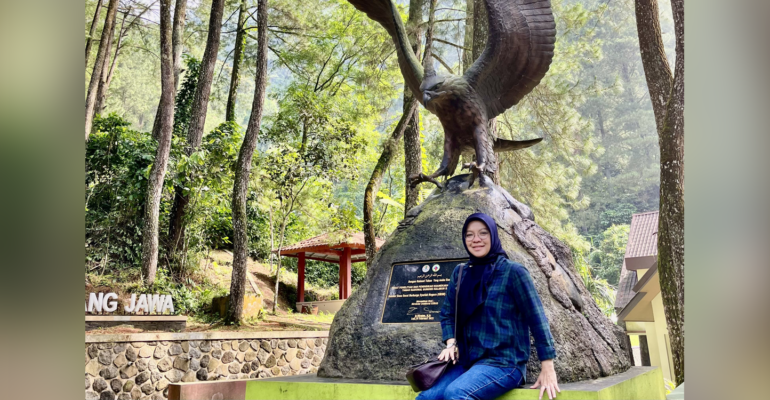IPB University Professor Explains Landscape Ecology Approach in Integrated Management for Raptor Habitat Conservation

Professor of the Faculty of Agriculture, IPB University, Prof Syartinilia explained the importance of the landscape ecology approach in integrated management for raptor habitat conservation.
“Indonesia is a migration route for many raptors. However, habitat destruction and illegal hunting have threatened the safety of these raptors,” she said in the Press Conference of Pre Scientific Oration of Professor of IPB University, (5/6).
Therefore, according to her, integrated landscape management is needed that uses the landscape ecology paradigm. Landscape ecology allows comprehensive integration of landscape structure, function, and change, by paying attention to various factors that affect ecological interactions.
“The paradigm combines landscape structure with multi-scale management, connects landscape functions with cross-boundary management, management that is adaptive to change, and management that combines these elements to achieve sustainable landscape integrity,” she said.
Prof Syartinilia explained that based on behaviour, raptors are divided into two groups, namely sedentary/endemic ones such as the Javan eagle (Nisaetus bartelsi), and migratory ones such as the Asian cycad (Pernis ptilorhynchus).
In the case of the Javan eagle, a multi-scale approach was used to understand landscape structure with a focus on habitat patches at micro, meso and macro scales. Recent findings show that the presence of Javan eagle habitat patches in the lowlands has decreased, which was not detected before.
“The decline in potential habitat area for Javan Hawk-eagle is caused by forest degradation and the impacts of climate change and human activities. Projections for 2050 show the possibility of a significant decline in Javan Hawk potential habitat area,” she said.
Meanwhile, Prof Syartinilia said the Asian cycad as a migratory raptor has an important role as an indicator of global ecosystem health. According to her, climate change threatens the habitat and migration distance of Asian cycads based on projection models showing a decrease in habitat area in the future.
“Therefore, it is important to adopt an integrated paradigm in landscape management to address conflicts in conventional management and maintain landscape integrity. Habitat conservation and further understanding of landscape change is an important part of conservation strategies for both endemic raptor species such as the Javan Hawk-eagle and migratory ones such as the Asian honeycreeper,” he said. (dr/Rz) (IAAS/RUM)


